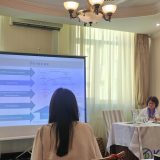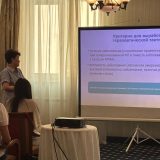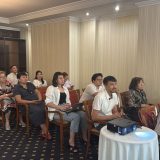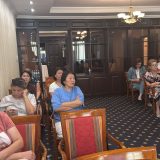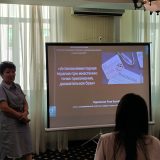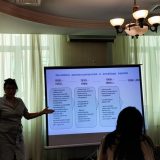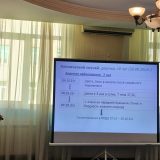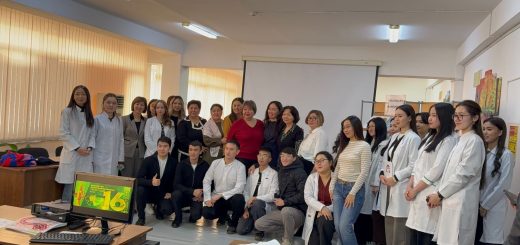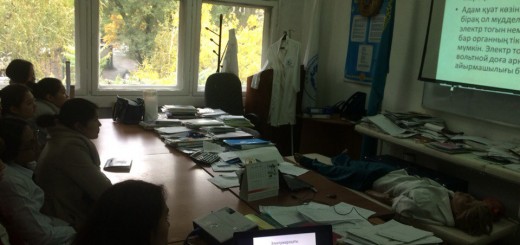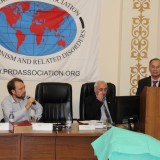Complement-Mediated Diseases: Interdisciplinary Dialogues
Observation and precision. For some professions, these qualities are almost essential. In today’s language, observation and precision are criteria of professional suitability for many specialties. There is no doubt that these qualities are crucial for neurologists and nephrologists alike.
The Department of Nervous Diseases of S.D. Asfendiyarov Kazakh National Medical University continues its series of educational events for practical healthcare professionals, dedicated to the 95th anniversary of our esteemed university and the 90th anniversary of the memory of Professor S.K. Kaishibayev.
On June 18, an educational seminar was held as part of the implementation of the cascade training method for healthcare specialists in accordance with the Roadmap for improving neurological care for the adult population of the Republic of Kazakhstan for 2025–2027 (No. 03324 dated 23.01.2025). The event was supported by the “Association of Neurologists” NGO of the Republic of Kazakhstan, the Department of Nephrology, and the Institute of Postgraduate Education of S.D. Asfendiyarov KazNMU.
Complement-mediated diseases represent a group of disorders whose development is associated with dysfunction of the complement system. The complement system is part of the immune system and plays a critical role in host defense. Improper activation or insufficient regulation of this system can lead to its pathological effects on the body. Diseases where the complement system plays a role in the development of pathological processes often include autoimmune and inflammatory reactions.
The seminar covered the following topics: Myasthenia Gravis, its clinical features in children, and the use of anti-complement therapy in myasthenia—target points and the evidence base. In an interdisciplinary dialogue format, thrombotic microangiopathies (TMAs) were also discussed. Over the past decade, various forms of TMA have been increasingly encountered. Despite clinicians’ vigilance and their ability to recognize these dangerous symptom complexes, differential diagnosis remains increasingly challenging.
The seminar was conducted by S.T. Turuspekova, Head of the Department of Nervous Diseases of S.D. Asfendiyarov KazNMU; Professor G.A. Mukhambetova; Associate Professor R.B. Nurzhanova from the Department of Nervous Diseases; and Associate Professor N.B. Nigmatullina from the Department of Nephrology.
During the seminar, the speakers addressed diagnostic methods, modern therapeutic approaches, the latest data, and new strategies for assessing treatment response in generalized myasthenia gravis.
In addition, clinical cases of TMA were presented by Associate Professor N.B. Nigmatullina from the Department of Nephrology of S.D. Asfendiyarov KazNMU, who shared her unique experience with anti-complement therapy.
Twenty-five neurologists and nephrologists from various medical institutions in Almaty participated in the seminar, giving high praise to the professionalism and expertise of the speakers.
The event received informational support from the Karaganda Pharmaceutical Complex.



